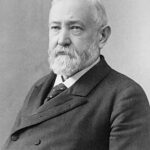The Harrison Wounded Knee Decision
President Benjamin Harrison’s administration made a shocking decision in 1891. The War Department awarded 20 Medals of Honor to soldiers. These medals honored participants in the Wounded Knee massacre. ⚠️ This decision followed the December 1890 killing of approximately 300 Lakota civilians. The Harrison Wounded Knee response remains one of America’s most controversial military honors.
The Massacre Details
On December 29, 1890, the 7th Cavalry surrounded a Lakota camp. The soldiers were attempting to disarm Chief Big Foot’s band. A scuffle over a rifle sparked chaos. 📊 Soldiers opened fire with rifles and Hotchkiss guns. Nearly 300 Lakota died, including women and children. Only 25 soldiers died, mostly from friendly fire.
Medal of Honor Awards
The War Department processed medal recommendations quickly. Twenty soldiers received the nation’s highest military honor. 🏅 Recipients included officers and enlisted men from the 7th Cavalry. The citations praised their “gallantry in action against hostile Indians.” Modern historians condemn these awards as rewards for war crimes.
Impact:
Immediate Political Consequences
The Harrison Wounded Knee decision sparked immediate controversy among reformers. Native American advocacy groups denounced the medal awards. 🔥 Newspapers across the country published conflicting accounts of the massacre. Some praised the military action as necessary. Others condemned it as the slaughter of innocents. Political opponents used the controversy against Harrison’s administration.
Long-term Historical Impact
The medal controversy damaged military honor traditions permanently. Historians now classify Wounded Knee as a massacre, not a battle. 📉 The event marked the end of the Indian Wars period. It became a symbol of government brutality toward Native Americans. The decision undermined trust between tribes and federal authorities for generations.
Modern Reassessment Efforts
Contemporary activists have demanded medal revocations for decades. Congress has considered bills to rescind the awards multiple times. 🌍 The controversy gained international attention during civil rights movements. Some military historians support removing the honors entirely. Others argue the awards reflect their historical period’s standards, not modern values.
